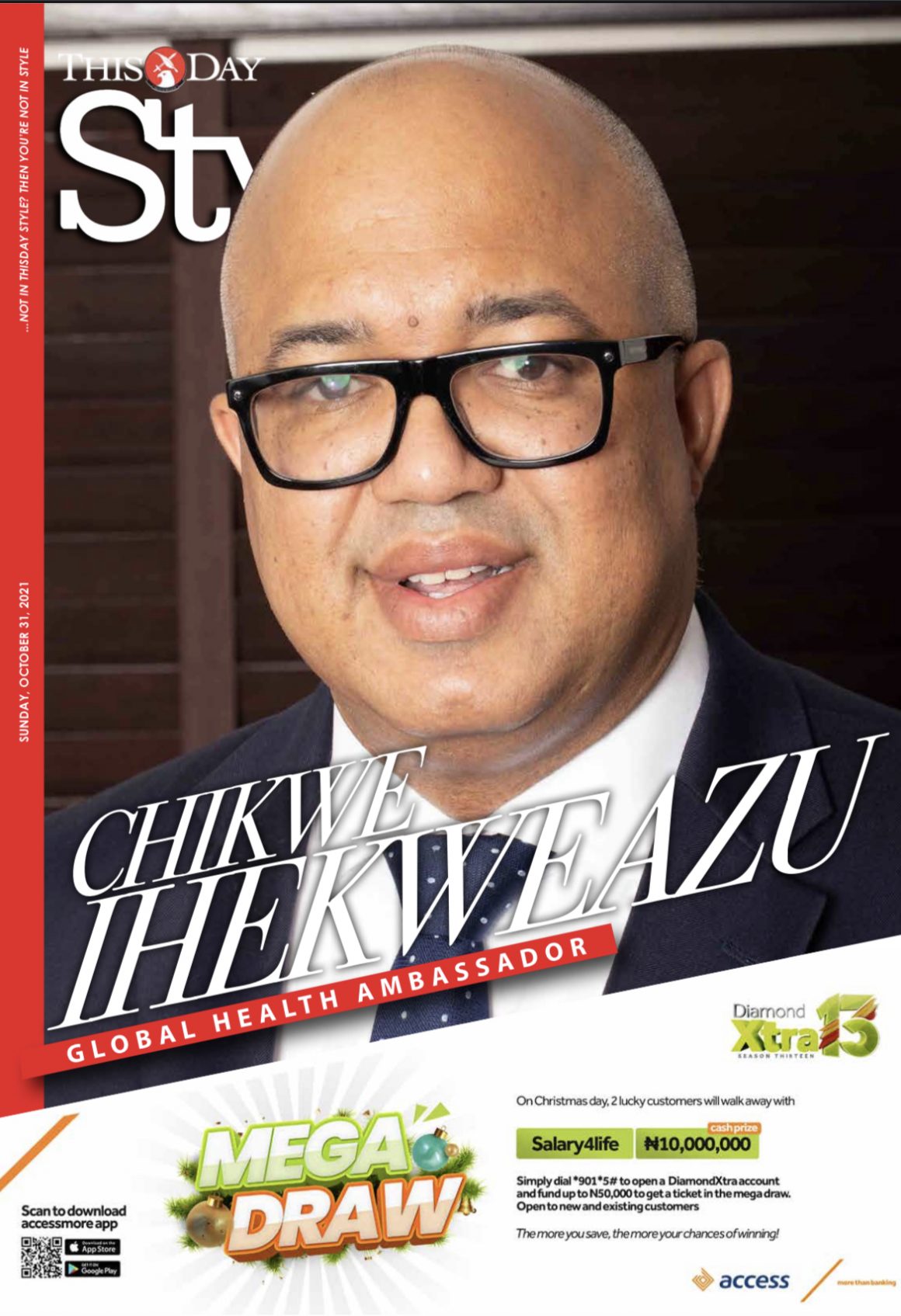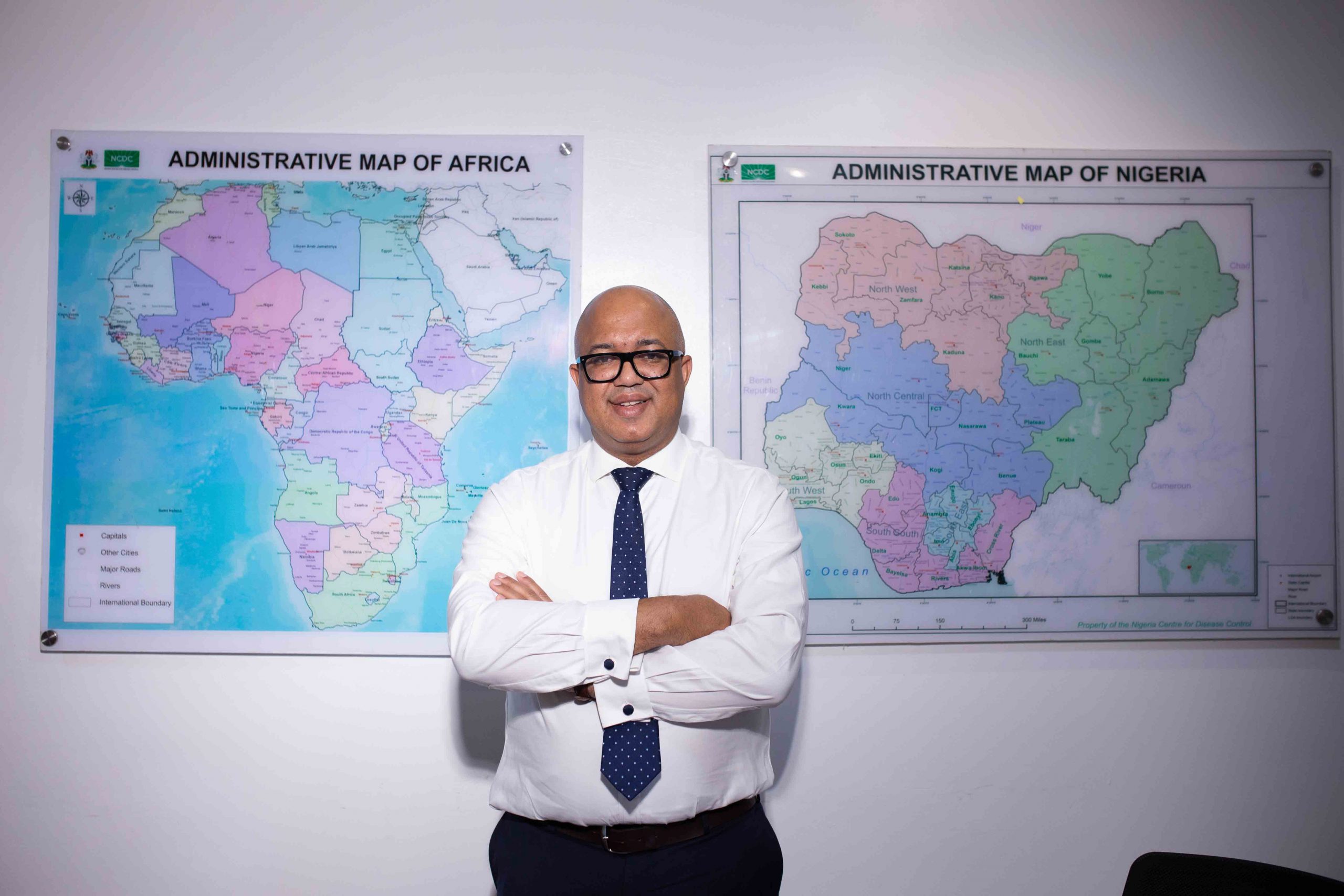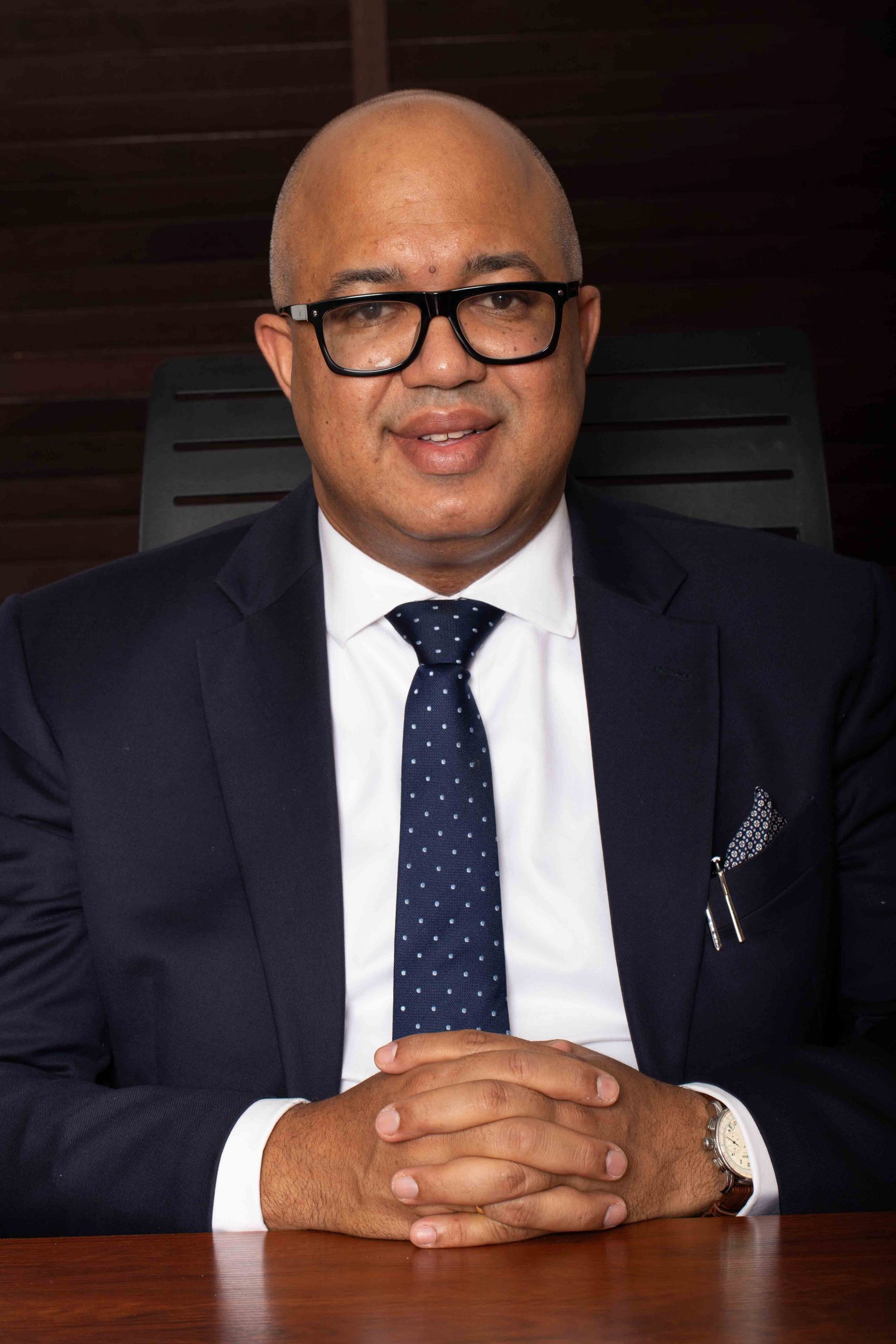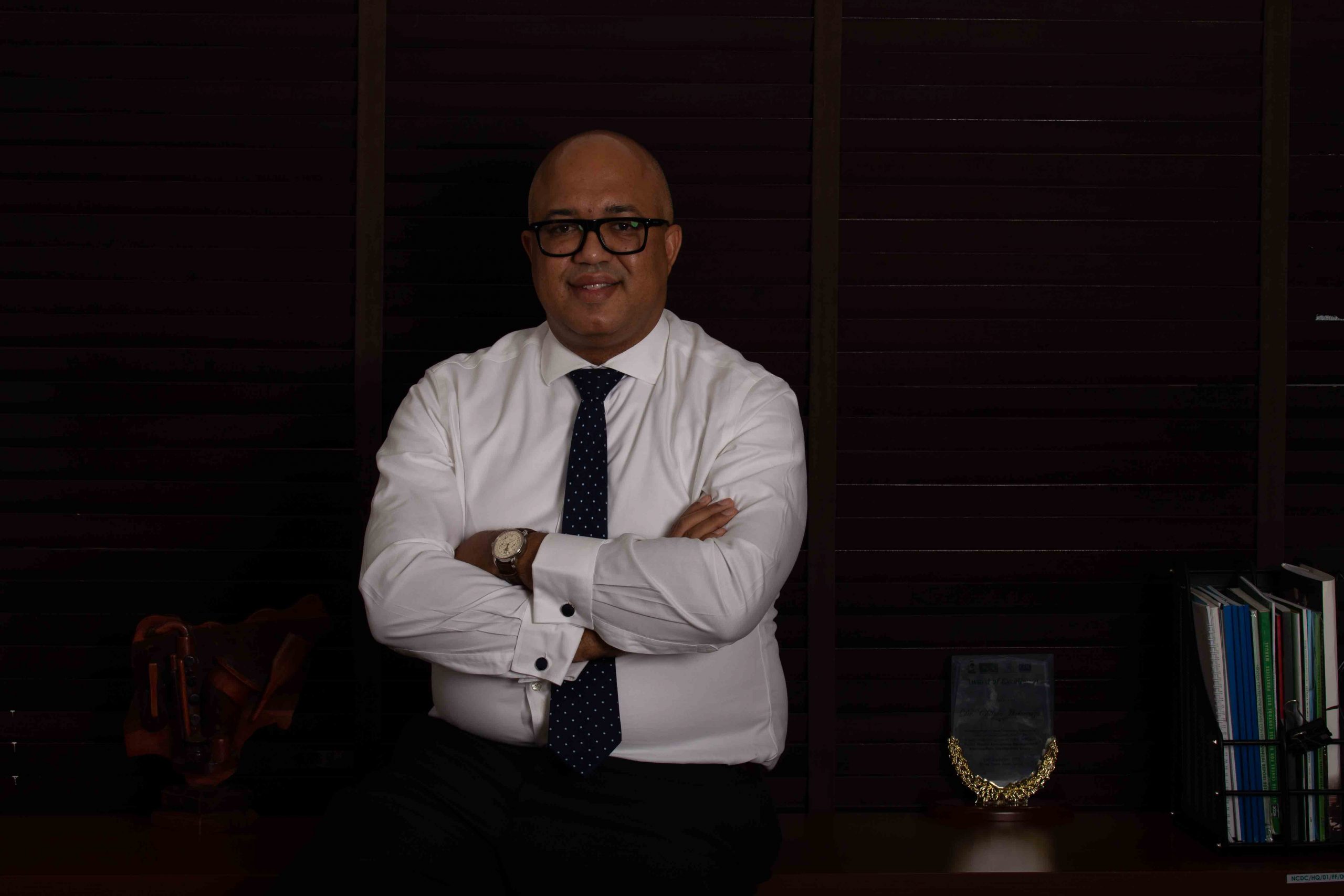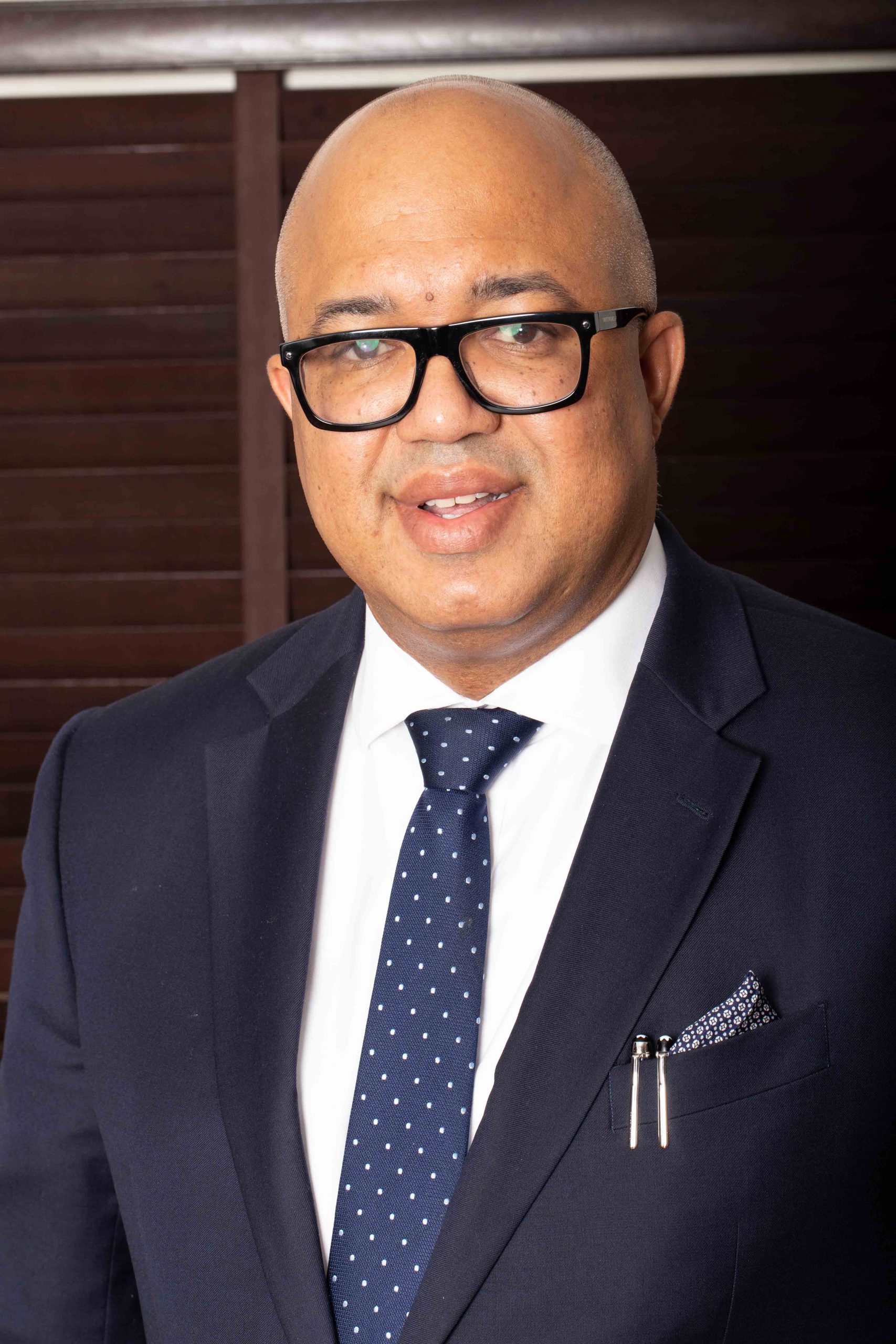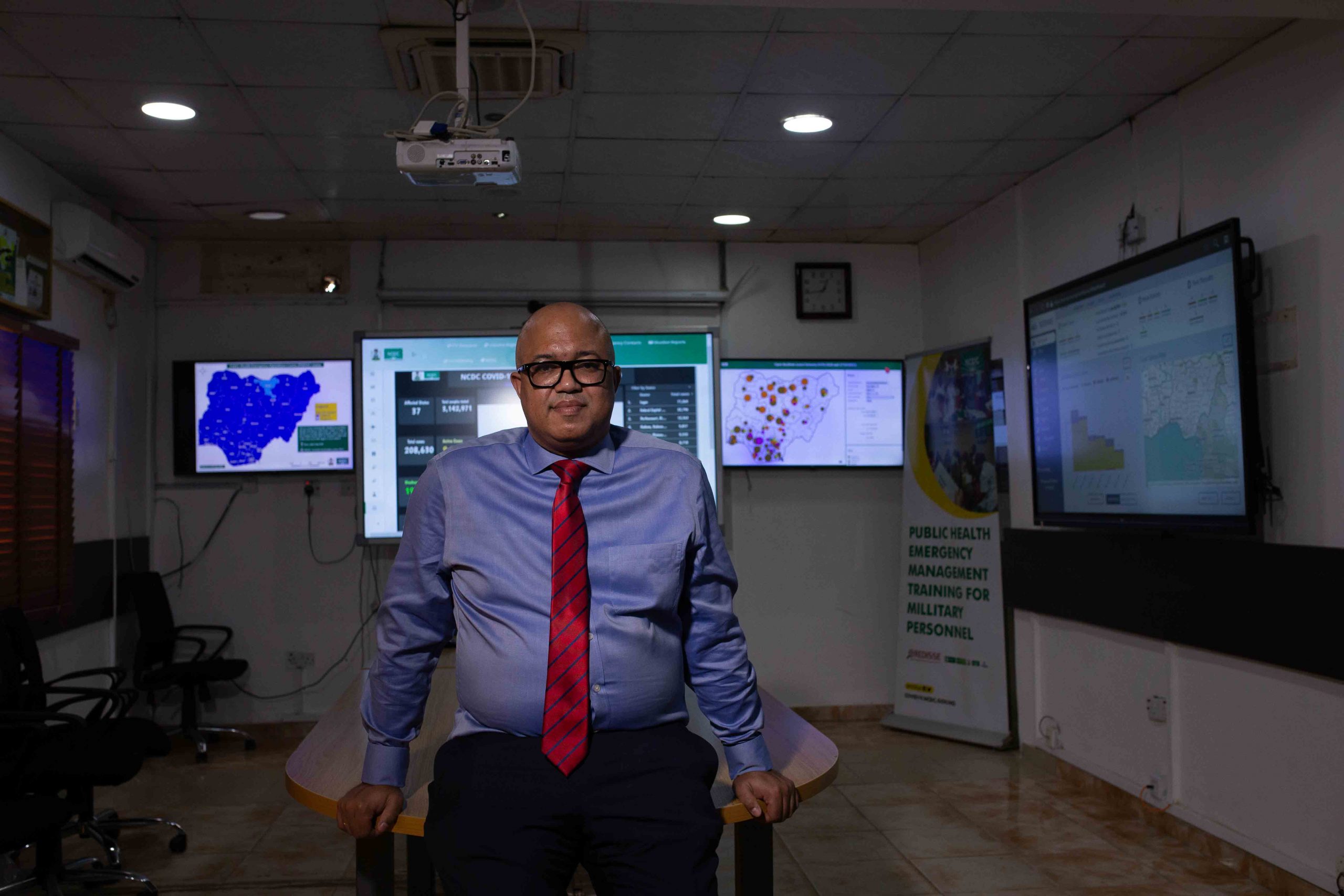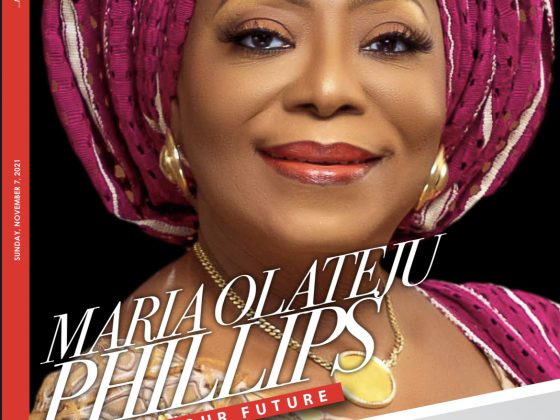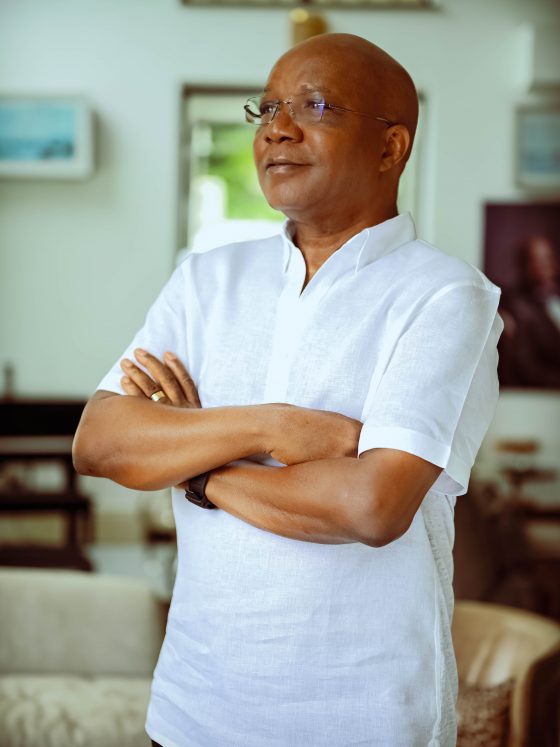Global Health Ambassador
Dr Chikwe Ihekweazu was the Chief Executive Officer/National Coordinator of the Nigeria Centre for Disease Control (NCDC) and now is an Assistant Director-General at the World Health Organisation (WHO).
He is an Infectious Disease Epidemiologist and Consultant in Public Health Medicine with 20 years of experience. He has held many leadership roles in several public health institutes, including the South African National Institute for Communicable Diseases (NICD), the UK’s Health Protection Agency, and Germany’s Robert Koch Institute (RKI). Dr Ihekweazu has also held several consultancy roles with the World Health Organisation in response to significant outbreaks and supporting the design of surveillance systems in Geneva, Sudan, Liberia, Lesotho, Swaziland, Turkey, and Nigeria, just to mention a few.
Health experts in Nigeria have credited Ihekweazu’s leadership as the key to Nigeria’s COVID-19 successes, but Ihekweazu credit’s the country’s decisive actions to a collective effort. In this interview with Style, the Dr gives Funke Babs-Kufeji and guest correspondent Uche Nwagboso an insight into how the Covid-19 pandemic was handled under his leadership at the NCDC; the Covid-19 virus in general and his new role at the WHO.
How did you start your career in Public Health?
After my housemanship at the University Teaching Hospital in Aba, Abia State and NYSC at the Police College, Ikeja, Lagos State, I was lucky to have the opportunity to travel abroad to continue my education. I had registered to do a Masters in Public Health at Heinrich Heine University, Germany – but I initially considered it a stop-gap measure as I intended to return to clinical medicine.
However, the experience from my Masters stimulated my interest in public health, and I went on to work at the Robert Koch Institute (RKI) in Berlin, Germany. My first job was as a research fellow working on the surveillance of healthcare associated infections. I also started supporting the HIV team in analysing the epidemiology of HIV in Germany. From work done on my Master’s thesis, I sent in an abstract for the 13th International AIDS Conference held in Durban, South Africa, in 2000, which was accepted as a poster.
Durban was to become a life-changing experience for me. At the time, there were increasing numbers of people infected with HIV on the continent, while the Antiretroviral drugs (ARVs) needed for treatment cost about $10,000 per person per year. Only a handful of Africans could access medications for a disease affecting thousands of lives on the continent. Years of economic growth in many countries, especially in Southern and Eastern Africa, had been wiped off by this new epidemic. Before the conference, we appeared utterly handicapped. We came to Durban to discuss the science, not knowing that a much bigger battle was about to start – one relating to access to treatment. In Durban, I met a bunch of front runners from Nigeria in the fight against HIV, and we formed a strong bond.
For me, it was in Durban that science and public health merged for the first time in my life to become a mission – to be part of a movement that ultimately led to the cost of ARVs now being less than $100 per person per year. This led to the U.S. President’s Emergency Plan for AIDS Relief (PEPFAR) and resource mobilisation worldwide – a movement that led to single pills for those living with HIV. It also brought about the prevention of mother-to-child transmission, a new paradigm in public health, one not of quarantine but inclusiveness of those infected and affected.
My short time at the conference in Durban became a life-changing experience to kickstart my career in public health. I saw that the power of public health to drive change was much more than what one had with clinical medicine, despite the excitement of seeing individual patients improve.
NCDC was put in the spotlight because of the COVID-19 pandemic. What are the functions of NCDC besides fighting Covid-19, and what prepared the agency to effectively respond to the pandemic?
While the COVID-19 pandemic put NCDC in the spotlight, it was our response to several local outbreaks over the years that prepared us for the pandemic. Since 2016, we have focused on building NCDC, establishing the systems required for infectious disease prevention, detection and response and building our workforce, both at NCDC and in states for health security.
Prior to the COVD-19 pandemic, we had made significant progress by establishing 21 State Public Health Emergency Operations Centres (PHEOC) for effective outbreak coordination and management; deployed and implemented the national digital surveillance tool, SORMAS across 312 LGAs in 16 states; established a National Reference Laboratory which leads the network of public health laboratories; trained public health workers at national and subnational levels etc. By the time the first COVID-19 case was detected in Nigeria, we were able to activate testing starting initially with the laboratories that had been set up for Lassa fever. These are some of the efforts that undoubtedly enhanced our public health preparedness and response to COVID-19.
The pandemic has triggered one of Nigeria’s most rapid investments in health security, which we have leveraged to scale up these projects. In one year, we have established molecular laboratories in every state in Nigeria; SORMAS has been operationalized across all states, with new standard treatment centres being established. Indeed, almost every state in Nigeria now has a PHEOC, integrating a call centre to other resources required for health security. Critically, our approach has always been that every outbreak is an opportunity to prepare better for the next one.
As the DG of NCDC, what achievements are you most proud of, and what advice would you have for your successor?
The NCDC has gone through a period of transformation in the past five years to build a model public health institute. I am most proud of the Team at NCDC – starting from less than one hundred staff in 2016 to 500 in 2021.
We have a team of formidable and resilient public health workers who understand and believe in our mandate to protect health security. They go above and beyond the call of duty and have led extremely significant efforts in building our health security capacity that will outlive any individual.
We have demonstrated that public sector organisations can work when given the space to do so. We met many obstacles from within and outside the system, but we got over them and restored the belief in what is possible in our country.
What advice would you have for young people in Nigeria who want to start a career in Public Health or the Sciences in general – what and where are the opportunities?
We live in a remarkably different time from when I started my career. The opportunities may seem limited, but young people have the advantage of technology, tools and resources to help them navigate and build skills for any career path. There are so many more opportunities now, compared to what existed then. Yet, I meet many young people who say that they are interested in science but have not done anything themselves to use opportunities open to them.
Supporting a new generation of leaders in public health is something NCDC has done actively in the past five years. We have a post-baccalaureate internship programme and a yearly intake of corps members from the National Youth Service Corps (NYSC) scheme who we go out of our way to support. In addition to this, a great deal of the work at NCDC is led by young public health professionals, supported by an amazing management team- and they have transformed the way we work, using information technology to drive change.
The opportunities are vast in public health. We need problem-solvers and critical thinkers. Young people must build their intellectual curiosity. This is perhaps the most important advice I share with the young generation.
How did NCDC provide leadership for Nigeria’s Covid-19 public health response?
In the past five years at NCDC, we have strengthened our capacity to lead, detect and respond to infectious disease outbreaks of public health relevance across all areas of work. This has also included supporting states in their response to disease outbreaks such as cholera, Lassa fever etc.
Our experience in building capabilities across testing, surveillance, research, supply chain and logistics, risk communication, delivering training and several other areas helped prepare us for the COVID-19 pandemic. While the pandemic has been unprecedented, we have had an enabling environment, including leadership from the Presidential Task Force on COVID-19.
At NCDC, we continue to work very hard in collaboration with our sister agencies, state governments and partners to strengthen the response to the pandemic and other disease outbreaks. Critically, our focus is on building sustainable systems towards more robust national and global health security.
Your new job with the WHO Hub has to do a lot with epidemic preparedness – how will your experience in managing Nigeria’s public health help with your new role?
Our experience at NCDC and in Nigeria has provided me with deep insights into the challenges affecting our epidemic preparedness capacity. But importantly, this experience has shown that we can make significant progress for global health security with sustainable investments, collaborative partnerships, and trust. While there are technical challenges, our primary challenge is not primarily technical but building trust in sharing data in our enlightened best interest.
We intend to do this at the Hub – support countries worldwide in improving their epidemic intelligence capabilities and be better prepared. If we can do this successfully, we can shape a better, more secure world.
Coming back to Nigeria, as much as awareness has been created about the wisdom and necessity of Covid vaccination, there are still those who stubbornly refuse to heed this advice. How else can one emphasise the urgent need to do the needful to reduce the burden of the infection?
Understandably, people may have concerns about the safety of the COVID-19 vaccine. The National Primary Health Care Development Agency (NPHCDA), with support from other government institutions, including NCDC, has been working very hard to inform Nigerians of the safety and effectiveness of COVID-19 vaccines. The government has also put efforts in place to ensure the vaccines are accessible across all states.
The development of the COVID-19 vaccines did not cut corners on testing for safety and effectiveness. The vaccines were made using processes that have been developed and tested over many years. As the COVID-19 pandemic continues, getting the vaccine is a powerful step in taking charge of one’s health. Also, as COVID-19 infection gives the coronavirus a chance to mutate, vaccination helps to prevent variants.
I urge Nigerians to get vaccinated. This is not an effort for the government alone – it requires collective efforts and cooperation of the public to beat this pandemic. I also urge private institutions, religious and traditional settings, and other groups to be part of the effort to build COVID-19 vaccine confidence.
People have somewhat let their guard down in terms of protection. Events are getting bigger and more people gather because they feel ‘safe’ being doubly vaccinated. Can you please further explain just how dangerous this Delta variant is for people to truly grasp that the dangerous times are still far from over?
The Delta variant is one of the most dangerous and easily transmissible variants we have seen yet of COVID-19. It has had crippling effects on countries such as India, which has similar geographical attributes as Nigeria. Data from genomic sequencing coordinated by NCDC shows that the Delta variant is now the dominant strain in our country.
Safety is not just about a feeling; it is also about the decisions that we make and the actions that we take. For COVID-19, that means taking the vaccine and not disregarding the known public health and safety measures. The COVID-19 vaccine is a high level of protection against severe symptoms of the infection, but we must be aware that some vaccinated individuals can get infected.
While it may be difficult, it is essential to sustain adherence to public health and safety measures. If you must meet in a crowd, this should be done in an open or well-ventilated location, with physical distancing and the use of face masks. It is essential to get vaccinated while also adhering to these measures. These are all very important!
You are moving on to a more significant role as an Assistant DG at WHO. What does your new role entail?
As Assistant Director General of the World Health Organization (WHO) Health Emergency Intelligence, I will be leading the new WHO Hub for Pandemic and Epidemic Intelligence. It entails working collaboratively with other experts from across the world to improve data sharing mechanisms, leverage innovations in data science for public health surveillance and response and create systems where we can share and expand expertise in this area globally.
While my role as Assistant Director Feneral of the World Health Organization (WHO) Health Emergency Intelligence is an important role, I disagree that it is more significant than leading NCDC. It is an opportunity for the African continent too. For too long, the voices and interests of the African continent may not have been adequately represented. Therefore, in the collaborative partnerships that I will be nurturing, I will aim to ensure that African countries are active participants in the decision-making that represents the collective best interest of the continent.
What motivated you to come back to Nigeria?
I was fortunate to have had a great educational foundation in Nigeria. I have always believed that if we Nigerians do not contribute to building the country we want, then who will do it for us? Despite having the opportunity to receive my further education and public health training in different countries, returning to Nigeria was something that my wife, Vivianne, who is equally committed to Nigeria, and I have always felt necessary. We always spoke about the opportunities and challenges that we saw in Nigeria, so when we had the opportunity to come back with our boys to contribute to its renaissance, there was never really a question of whether we would or not. Nigeria is ours, and as much as we may have been lucky to enjoy some of the privileges that living abroad brings, it was a privilege to contribute a little bit to building our country.
What will you miss most about Nigeria?
I will leave Nigeria physically for now, but Nigeria is always in my heart and remains home for my family and me. I will miss the energy of my team at NCDC. I will miss the feeling of achievement that we could reach, the joy of seeing individuals grow and realize their potential.
I will miss my trips around the states in Nigeria, seeing the beautiful diversity of our country. I will miss the countless debates on how to make it work better for all of us. While all of this is true, in reality, I can never really leave Nigeria.
How will you describe Nigerians generally as a people?
Nigerians are vibrant, innovative, spirited, resilient and full of optimism. We have a special gift of intrinsic self-motivation. Our collective challenge as a country and people is how to channel this into good. We are truly blessed to possess all these attributes even in the most challenging situations, and we have a responsibility to make them count for our country.

